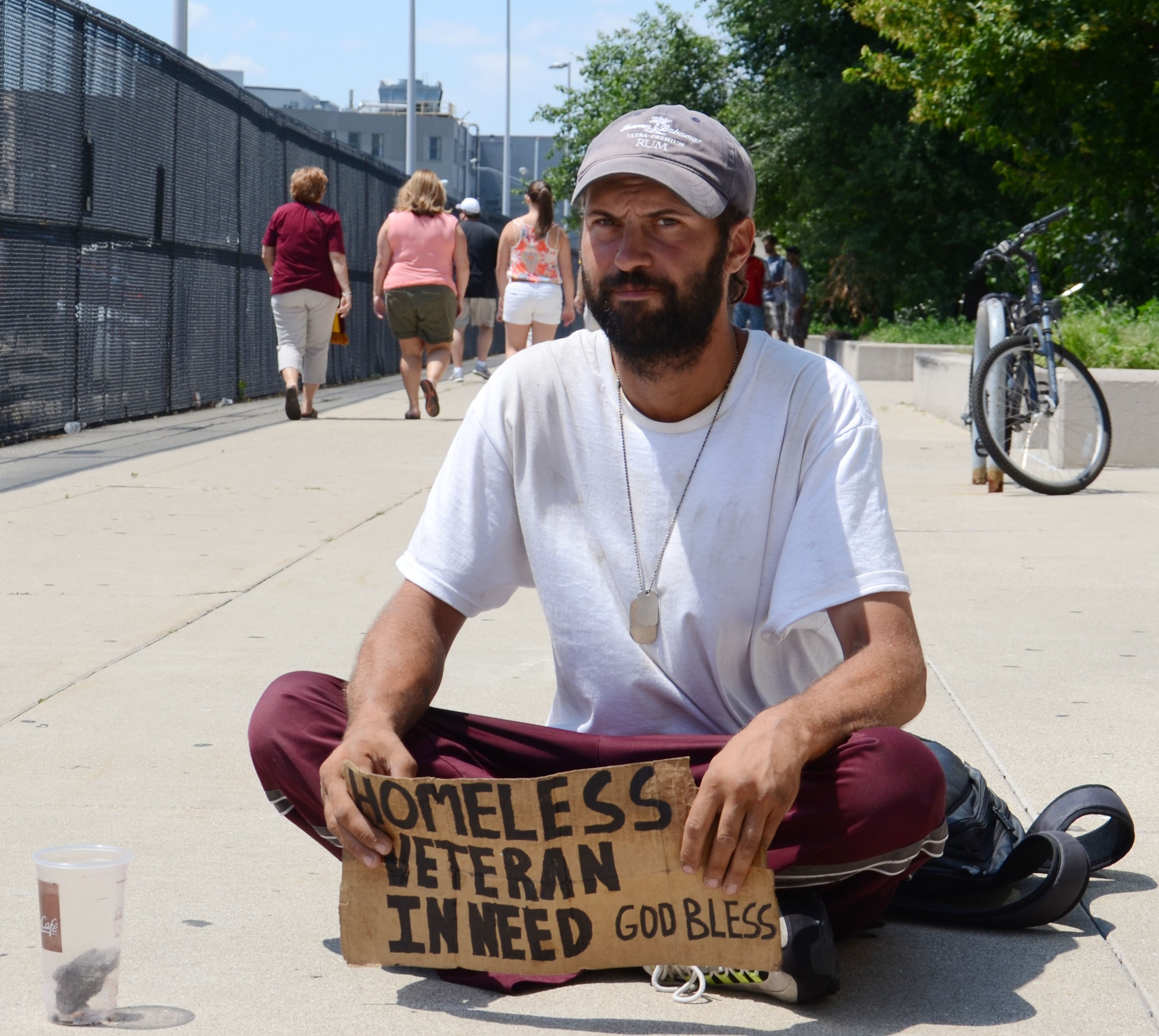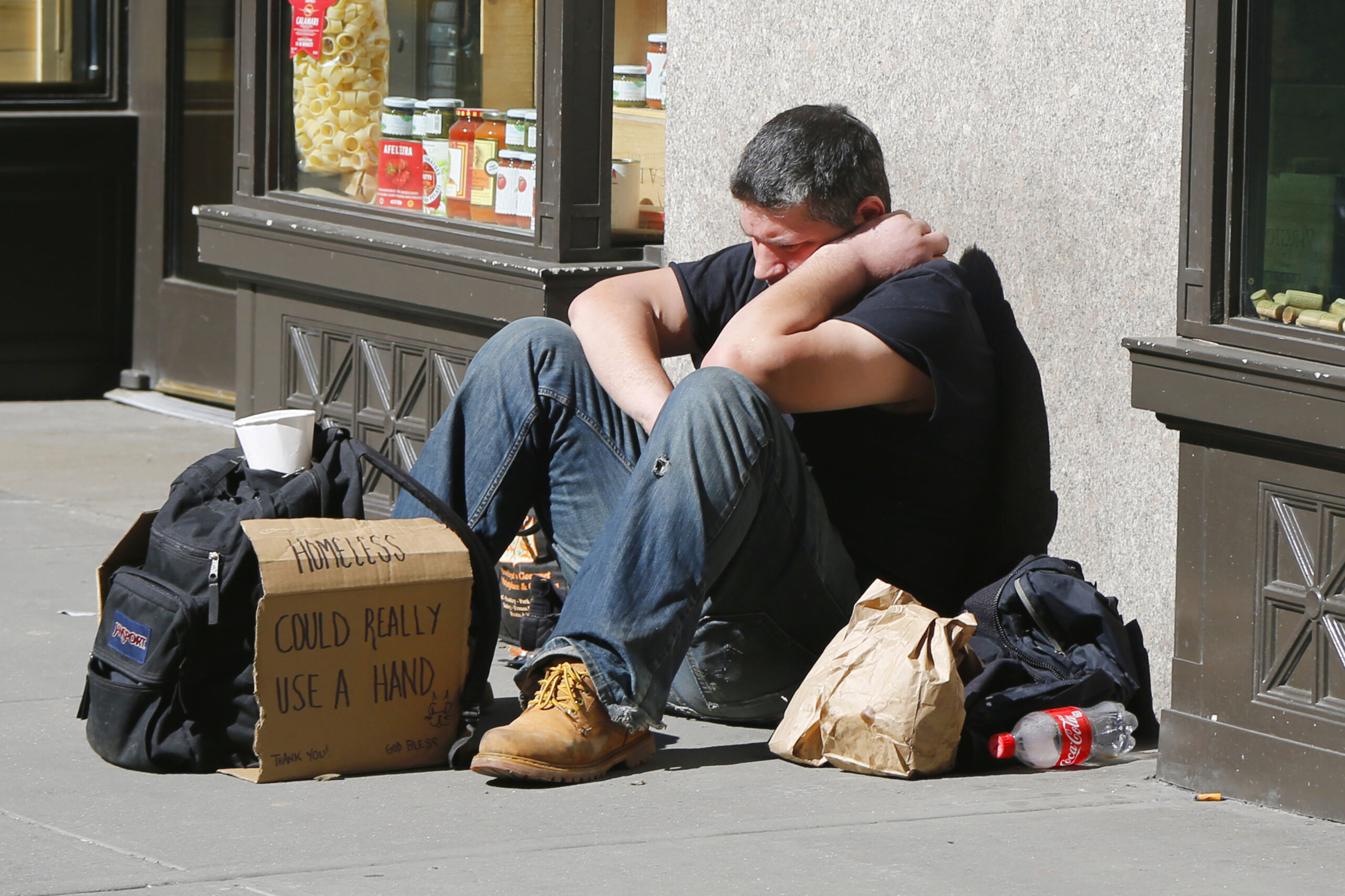What’s in a name? A lot. When it comes to using phrases like “homeless people,” it’s important to be aware of the negative outcomes labels like these can have. The words we use to categorize groups or define individuals greatly influence public perception, and in some cases, a person’s attitude toward members of our society. When talking with your family, including your children, about social issues such as homelessness, it’s important to remember that people who are in a situation that has led to homelessness are people first.

Avoid Labels
Valley of the Sun United Way uses the phrase “people experiencing homelessness” instead of “homeless people.” This psychological grouping has a lot to do with the choice of words. By calling someone a homeless person it identifies them in a grouping, allowing a psychological separation from those who have homes. By stating that someone is a person experiencing homelessness honors the most important element, that he or she is a person.
In addition, using the phrase “homeless person” can imply that the solution to each person’s problem is to provide a place to live. While this is a good start for some scenarios, it isn’t the sole answer for all. Many times people who are experiencing homelessness had a single situation that resources could have fixed – a situation out of their control like layoffs at a job or an unexpected, high cost medical expense or he or she may have an untreated mental illness. In many cases, it’s one financial emergency after another that piled up too high to manage. In these cases, many of the above-mentioned problems will still exist after a place to live is established.
Lead with Empathy
When talking to children about homelessness, you might start by expressing your own feelings, by saying something like “I think it’s sad that person doesn’t have anywhere to live.” During these conversations, it’s important for children to understand that people are homeless for lots of different reasons.
A goal might be to help kids think about how someone experiencing homelessness might be feeling rather than treating him or her as an object to be talked about. If you hear your child — or any kid in her social circle — making fun of a homeless person, be clear that disrespect is not okay.
Make it Age Appropriate
Keep in mind, these conversations don’t have to be long or drawn out. Five- to 8-year-olds are transitioning from being me-centered to seeing themselves as part of a group, and are becoming interested in solving the problems they see. With small children, it’s also important to communicate that they are safe. Let them know that while they have a home and food to eat, some people may not be in the same situation.
Older children should understand that some families, maybe even some children they know, are experiencing homelessness. Consider talking about the negative effects these circumstances can have on kids’ ability to learn and be successful in school, make friends and stay healthy.
Inspire Action
A next step might be to talk about services that are available in your city, and how you can make a difference by sharing, “In our community, there are places where people can go to get a good meal and a place to sleep, but this isn’t the same as having their own house.” Suggest how your family can help and ask kids for their ideas like “what do you think we could do to help?”
One specific way to make a difference for individuals and families experiencing homelessness in Maricopa County, is to assist with United Way’s Summer Heat Relief efforts (see link below). Local resources that address homelessness, and other basic needs, are included below.

